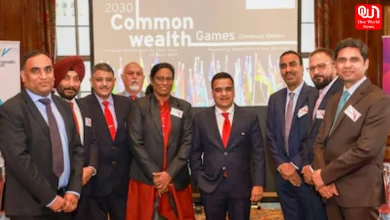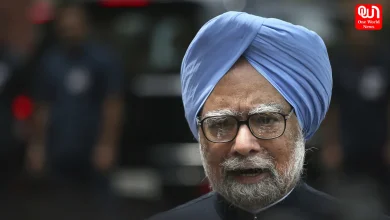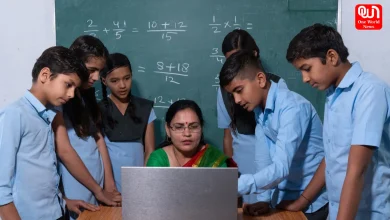Fake Videos Case: Supreme Court Turns Down YouTuber’s Plea!
Supreme Court denies appeal by YouTuber Manish Kashyap against NSA and FIRs in Fake Videos Case involving attacks on Bihar laborer's. Know full story here.
Fake video case: Manish Kashyap’s plea against NSA and Multiple FIRs dismissed by the Supreme Court
The Supreme Court has denied the plea of YouTuber Manish Kashyap, who is facing several FIRs for fake videos case i.e. uploading and depicting attacks on migrant labourers from Bihar in Tamil Nadu.
The court refused to consider his appeal against the invocation of the National Security Act (NSA) and the consolidation of multiple FIRs. However, it allowed Kashyap to pursue legal remedies regarding the multiple FIRs and his detention under the NSA.
Court Questions Motives: YouTuber Accused of Circulating Fake Videos to Create Disquiet
Senior advocate Maninder Singh, representing Kashyap, argued that the NSA had been applied in a malicious manner, citing newspaper reports that preceded the uploading of the videos. He expressed concern over the potential miscarriage of justice if Kashyap remains in custody. Kashyap is currently facing 12 FIRs in Bihar and six in Tamil Nadu.
Pursuing Legal Remedies: Petitioner Allowed to Seek Redress for Multiple FIRs and NSA Detention
Kashyap’s counsel requested the court to merge all the FIRs and transfer them to Patna, as the initial case was filed against him there on March 5, 2023. However, the bench contended that since Kashyap had created fake videos, there was no recourse available. The court stated that the videos had the potential to incite unrest in a stable state like Tamil Nadu, adding, “What is to be done? You produced these fake videos.”
Allegations of Malicious Intent: Counsel Argues NSA Imposed Based on Pre-existing News Reports
Senior advocate Kapil Sibal, representing Tamil Nadu along with the state’s Additional Advocate General Amit Anand Tiwari, argued that Kashyap is not a journalist but a politician who had contested elections. On the other hand, the counsel for the Bihar government described Kashyap as a habitual offender and an “extortionist,” highlighting the existence of other cases against him.
Facing Numerous Charges: YouTuber Confronts 12 FIRs in Bihar and 6 in Tamil Nadu
An affidavit submitted by Joseph Aristotle, counsel for the Tamil Nadu government, stated that the detention order under the National Security Act was based on the analysis of the fabricated videos and rumors spread by Kashyap. The affidavit emphasized the adverse impact of these videos on the ground, creating panic and a volatile situation that required the intervention of senior police officers and the governments of Tamil Nadu and Bihar. The state government accused Kashyap of intentionally creating disharmony and disaffection among groups through falsehoods and lies, with the aim of exploiting the resulting situation.
Request for Consolidation: Plea to Club FIRs and Transfer Case to Patna Denied
The counsel for Kashyap requested the court to consolidate all the FIRs and transfer them to Patna, as the first case was lodged against him there on March 5, 2023. However, the bench rejected the request, citing the creation of fake videos by Kashyap as the reason for denial. The court maintained that such fabricated content could not be overlooked.
Supreme Court Highlights Fabricated Content: Videos Produced by YouTuber Deemed Fake
During the proceedings, the Supreme Court emphasized that the videos uploaded by Kashyap were fabricated and had the potential to cause disquiet and unrest in Tamil Nadu. The court highlighted the seriousness of producing and circulating misleading content that could harm the peace and stability of a state.
Political Affiliation: YouTuber Identified as Former Politician Contesting Elections.
Senior advocate Kapil Sibal, representing Tamil Nadu, along with the state’s Additional Advocate General Amit Anand Tiwari, argued that Kashyap was not a journalist but a former politician who had contested elections. This statement aimed to establish that Kashyap’s intentions might not have been in line with journalistic ethics but rather driven by political motives.
History of Offenses: Bihar Government Claims YouTuber is a Habitual Offender and Extortionist
Contrary to the arguments put forth by Kashyap’s counsel, the counsel representing the Bihar government countered by stating that Kashyap had a history of offenses. They labeled him as a habitual offender and an “extortionist.” The Bihar government further highlighted the existence of other cases against Kashyap, suggesting a pattern of unlawful behavior.
Affidavit Reveals Grounds for Detention: Fake Videos Caused Panic and Volatility, State Government Alleges
An affidavit submitted by Joseph Aristotle, counsel for the Tamil Nadu government, shed light on the reasons behind Kashyap’s detention under the National Security Act. The affidavit argued that Kashyap’s fake videos had caused panic and volatility, necessitating the involvement of senior police officers and the governments of Tamil Nadu and Bihar. The state government accused Kashyap of intentionally creating disharmony and disaffection among groups through falsehoods and lies, with the purpose of exploiting the resulting situation for personal gain.
Spreading Disharmony and Disaffection: YouTuber Accused of Seeking Personal Gain Through Falsehoods.
The allegations against Kashyap extended beyond the mere creation of fake videos. The state government accused him of intentionally spreading disharmony and disaffection among different groups through the dissemination of false information. The motive behind these actions was believed to be personal gain, with Kashyap allegedly seeking to exploit the resulting tensions and conflicts for his own benefit.
Conclusion
The Supreme Court has rejected the plea filed by YouTuber Manish Kashyap against the invocation of the National Security Act (NSA) and the consolidation of multiple FIRs lodged for uploading alleged fake videos of attacks on migrant labourers from Bihar in Tamil Nadu.
While allowing Kashyap to pursue his legal remedies in accordance with the law, the court emphasized the gravity of the situation, highlighting the potential for his fabricated videos to incite disquiet and unrest. The court’s decision reflects the need to address and deter the circulation of misleading and harmful content, particularly when it has the potential to disrupt social harmony and create volatile situations.
Like this post?
Register at One World News to never miss out on videos, celeb interviews, and best reads.








